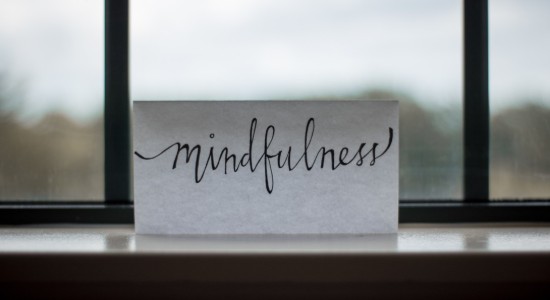For most, struggling with an eating disorder is an enormous disruption in life.
It’s more than simply looking in the mirror and disliking what you see. The critical voices, the obsessive calorie counting and weighing in, and a constant feeling of guilt all build up to create havoc.
Often, it may seem like you’re making headway, embracing a healthy self-image, only to be knocked back to square one.
Beating an eating disorder can be tricky. Mostly because it’s not simple. Rather, it’s complicated with feelings and emotions tangled up inside of you.
But it is possible. And practicing mindfulness can be a vital key to helping you ease disordered eating.
Here’s how.
Replaces the Lies with Reality
Mindfulness is a deliberate way of living and a purposeful manner of thinking. It’s allowing reality to enter your senses.
By paying close attention to how you feel and to your environment, it’s possible to uncover lies that surround disordered eating.
Thoughts like, “I’m fat and disgusting” lose their power, because mindfulness lets you anchor yourself to reality. And reality doesn’t support either accusation.
It’s not automatic, like waving a magic wand. Still, mindfulness has the power to expose the lies your inner critic tells you.
Helps to Silence Your Inner Critic
With your inner critic lurking in the shadows of your mind, you’re less likely to silence it. Though, to overcome an eating disorder, it’s important not only to reveal the lies, but also to silence your inner critic.
You’re probably very aware of the negative thoughts bringing you down. No one knows them better than you. After all, these are the same thoughts driving the eating disorder.
But once mindfulness sheds light on the critical falsehoods, your mental muscle begins to flex.
Feeling empowered and enlightened, being mindful provides you with the strength to tell your inner critic to be silent. Then managing disordered eating becomes more doable.
Allows You to See the Big Picture
An eating disorder can work a lot like blinders on a racehorse–or like tunnel vision–only allowing you to see what it wants you to see. Usually, your flaws, which only encourages disordered eating.
Mindfulness functions in the opposite way, bringing positive elements to life.
By intensely focusing on what you feel and experience, you start to see the world as a bigger and more positive place.
Rather than obsessing on changing yourself, mindfulness grants you the authority to find a place in this world. Essentially it allows you to feel more like you fit in just as you are.
Lifts Your Self-Esteem
Chipping away at your self-worth and self-confidence, an eating disorder can make you feel like a big “nothing.”
But practicing mindfulness assigns a human value to you once again. Whether it’s lingering in a particularly encouraging moment or savoring a healthy meal, you begin to experience little victories.
Moments become more meaningful, and, in turn, you become more meaningful to yourself.
Ultimately mindfulness boosts your self-esteem by laying waste to that negative feeling of not being worth it. As your self-esteem becomes stronger, disordered eating loses its vicious grip on you.
Supports Happiness and Personal Fulfillment
Being mindful includes sensory elements that may have otherwise remained foreign to you. Things like enjoying the taste of your favorite food or watching the scale increase as you regain muscle mass.
Perhaps these experiences seem small to others. But it’s in these moments that mindfulness gives you the right to be happy.
Your inner critic, fueled by disordered eating, will tell you that you don’t deserve to be happy or to eat a savory meal.
But take a moment to enjoy the feel of the table touching your forearm, the coolness of the fork in your hand, or the flavor of food on your lips. Listening to how steady your heart beats and how calmly you breathe, it becomes clear that this level of self-awareness can help you to embrace happiness and personal fulfillment.
Take the first step…
If you are ready to address your food and body image issues and how they may be affecting your life, I would like to help. Please contact me via phone or email so we can discuss how we might work together to achieve your therapeutic goals as quickly and effectively as possible.
I look forward to hearing from you.
Linda K. Laffey, MFT


